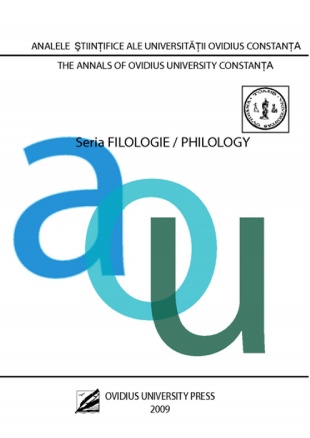INTERTEXTUAL FLOWS: FROM ANCIENT OVID TO ROMANTIC POETS TO CONTEMPORARY DIRECTORS. POETRY AS EDUCATIONAL ANTI-EXILE IN DEAD POETS SOCIETY (PETER WEIR, 1989)
INTERTEXTUAL FLOWS: FROM ANCIENT OVID TO ROMANTIC POETS TO CONTEMPORARY DIRECTORS. POETRY AS EDUCATIONAL ANTI-EXILE IN DEAD POETS SOCIETY (PETER WEIR, 1989)
Author(s): Ileana JitaruSubject(s): Language and Literature Studies
Published by: Ovidius University Press
Keywords: intertextuality; Harold Bloom; anxiety of influence; revisionary ratios; Peter Weir.
Summary/Abstract: Harold Bloom’s seminal work The Anxiety of Influence postulates a critical vision according towhich poets are influenced in their writing by the different relationships they become engaged in withprecursor poets. Bloom discerns the process by which the small minority of what he calls ‘strong’ poetsmanage to create original work, in spite of the pressure of influence in an Agon1that encloses sixrevisionary ratios. Peter Weir’s film Dead Poets Society reads as an intertextual continuum, a form ofhomage paid to the grand poets of English and American literature, who are themselves indebted to theAncient poet Ovid. With a focus on Bloom’s revisionary ratios, the present paper aims to demonstratethat Weir’s movie is a filmic intertext descending from Ovid, and the grand Romantic poetry becomes aneducational manifest for the anti-exile of the mind appropriated to a contemporary audience.
Journal: Analele Universităţii Ovidius din Constanţa. Seria Filologie
- Issue Year: XXIX/2018
- Issue No: 1
- Page Range: 53-61
- Page Count: 9
- Language: English

